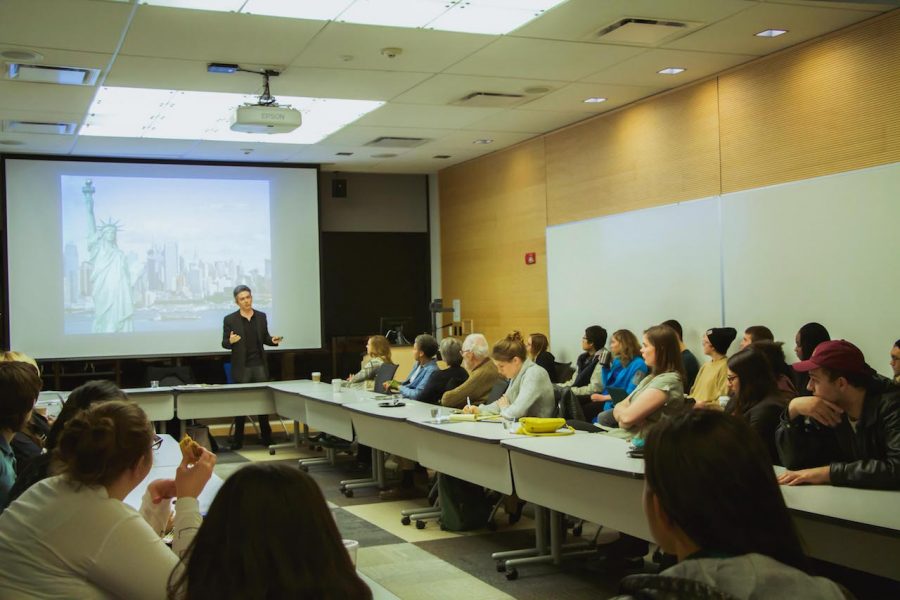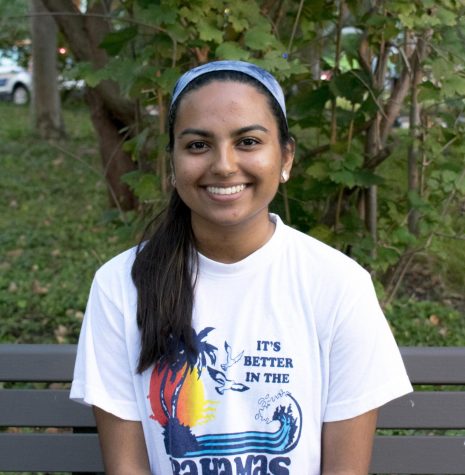Panel on refugees honors World Day of Social Justice
To honor the World Social Justice Day, The Social Justice Institute and Inamori International Center for Ethics and Excellence hosted a panel discussion on the Syria refugee crsis. Professors from political science and history, and the public relation mananger of a Cleveland refugee camp weighed in on this issue.
February 24, 2017
On Feb. 20, in tribute of the United Nations’ (UN) World Day of Social Justice, the Social Justice Institute and the Inamori International Center for Ethics and Excellence hosted a panel discussion called the “Refugee Crisis in Syria”, in Crawford Hall. The panel discussed the different facets of the Syrian refugee crisis and its local impact, along with the United State’s history of immigration and refugees. The panel’s topic was chosen to echo the contemporary struggle that refugees face when seeking justice regarding resettlement.
It featured political science professor of Peter Moore, history professor and Social Justice Institute academic coordinator John Flores, along with Danielle Drake, the Community Relations Manager for Us Together Inc.’s Cleveland Branch. The agency works to resettle refugees.
First-year student Farrah Gao thought that the panel was very rewarding.
“We went [to the panel] because it was part of the requirements for CCEL Scholars; however, we chose this lecture because it is a highly discussed topic nowadays,” said Gao. “It was very interesting and informative, and it cleared up a lot of incorrect ideas I had about Syrian refugees and their lives.”
Flores started the event with an account of the history of U.S. immigration and naturalization policies, beginning with the Naturalization Act of 1790, which restricted giving citizenship to only “any alien being a free white person.” He explained that since then, there have always been debates during which people should be granted citizenship; the problem of refugees emerged more prominently after World War II, and has been a continuous issue even today.
Following Flores’ presentation, Moore, a political scientist, provided some insight on the ongoing crisis in Syria. He explained that since 1980s, there has been continuous political turmoil in Syria, which was severely magnified after the onset of the Syrian Civil War in 2011. During the war, as the conflict spread, and the fighting worsened drastically, millions of refugees fled the country to refugee camps and applied for resettlement in nations all across the world.
He said that currently, neighboring countries such as Jordan and Lebanon host large numbers of refugees despite their limited resources. Furthermore, the international community, along with many nongovernmental organizations, has been striving to help these people in different ways, from ensuring the safety of refugee camps to providing them financial support and ensuring access to education and healthcare. Despite these efforts, he explained, the resettlement rate for refugees has stayed low.
Finally, Drake spoke about the progress that U.N. and different organizations—including some in Cleveland—have made so far to address the refugee crisis. Drake said that three of the nine major U.S agencies have contracted to resettle refugees in Cleveland.




